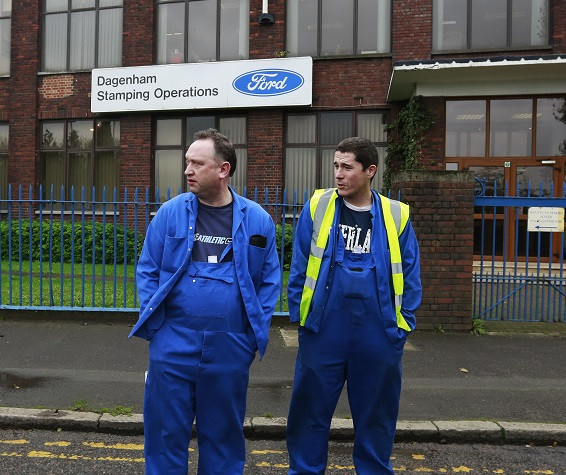A Living Wage Makes Good Business Sense for Britain and America Alike

The campaign for a living wage in the States and in the UK –unsurprisingly – faces the same sort of hostile media bombardment as the campaign for the introduction of the National Minimum Wages. As an organisation which utilises digital communication and social media to oxygenate and build support for labour movement issues, Union Solidarity International has been confronted with comments along the lines of: 'a raise will cost jobs', 'the economy will be hurt', 'labor doesn't understand economics' and so on.
But where are the economic grounds in this assertion: the answer is there is none. But, when have right-wing politics ever allowed the facts to inform their argument on this issue?
It reminds those of us based in the UK of the doomsday scenarios painted by the Conservatives as the incoming Labour Government promised to introduce a minimum wage in 1997. Let's remind ourselves of some of the Book of Revelation prophecies of impending doom.
Deputy Prime Minister Michael Heseltine mocked the idea back in 1996, saying: "Any fool knows that a minimum wage costs jobs."
Iain Duncan Smith, speaking in 1997, said it "will negatively affect, not hundreds of thousands but millions of people" depending on how high the minimum wage was set.
William Hague, speaking as leader of the Opposition, ridiculed the minimum wage, saying in 1997 it "would be either so low as to be utterly irrelevant or so high that it would price people out of work."
To the contrary, after the implementation of the National Minimum Wage there were net job and pay increases which benefited over a million workers. The UK Low Pay Commission confirms that, revealing "there were 2.8 million more workforce jobs in the UK in September 2012 than before the minimum wage was introduced. There were also 2.0 million more people in work, an increase of 9.4 per cent." So much for a million jobs down the toilet due to its introduction.
Now those on both sides of the Atlantic switch to Plan B: if you raise it any higher then jobs will be lost. The same old drivel. In an article written with such hysteria it took us back to those old Tory politicians, Luke Johnson in the Financial Times contested that to raise the minimum wage would - wait for it – be 'populist politics and bad economics'. You just couldn't make it up!
A powerful editorial by the New York Times points out that the recent Congressional Budget Office report actually said that the benefits of a raise to $10.10 by 2016 were 'almost entirely positive'. Sixteen million low-wage workers making $7.25 an hour would directly benefit from the increase, while up to 8 million earning slightly more than the minimum would also probably get a raise due to the "ripple effect", in total adding $31 billion to the wages of families. So much for the impending disaster once again.
We're just hearing the same old drivel... you couldn't make it up!
The Right Wing has instead sought to focus on a scenario – I stress that word – which suggests up to 500,000 (insert jobs) could be lost as a result. Now anyone who has done economics knows that variables are weighted and various scenarios are modulated. The report actually stated that there is a two-in-three chance that a $10.10 wage would produce job losses in a range from just above zero to one million. Yes – starting at zero job losses in conjunction with lifting millions out of poverty and putting extra money into the pockets of tens of millions.
In the UK, an excellent report commissioned by the public sector union Unison supports the trade union movement's campaign for a Living Wage. It also states that there can be an aggregate jobs gain from raising the minimum wage. The following is worth quoting:
"Using recent estimates from the IMF of the effectiveness of fiscal stimulus in the recent economic depression and combining them with the UK Office for Budget Responsibility's own multiplier estimates, this report has shown that once the potential macroeconomic stimulus effects of extending the living wage to all employees are taken into account, it is more likely than not that a statutory living wage would result in a modest boost to aggregate employment."
So much for the labour movement not understanding economics eh!
Andrew Brady is director of Union Solidarity International, a pan-national body which exists to further the cause of trade unions and oppose neoliberalism.
For more information about USi, go to the website or follow on Twitter here.
© Copyright IBTimes 2025. All rights reserved.





















